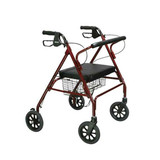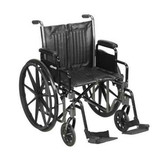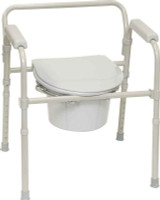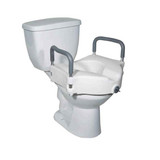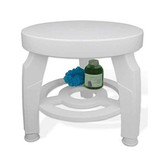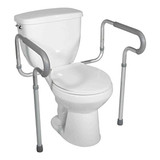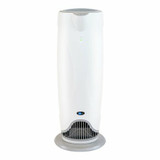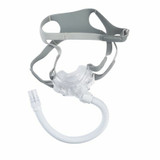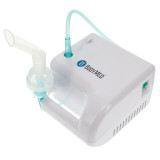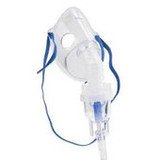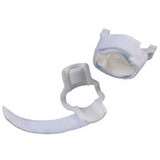
The Essential Qualities of the Best Caregivers
According to National Alliance for Caregiving statistics published in 2020, one in five American adults provided unpaid care to another person, in most cases an elderly family member. For the sake of clarity, that’s 53 million people. And, as the population continues to age, this number will continue increasing. Now, you may be tempted to wonder how 53 million people can be blessed with all the skills necessary to be the best caregivers.
Well, the simple truth is they didn’t all have the full arsenal of skills when they took on this role. Many of them would have started out feeling as if they were trying to find their way through a maze blindfolded. But they are proof that, contrary to popular belief, you don’t have to be born with qualities like empathy and patience. You can acquire or develop them. Let’s discuss these skills and some strategies or techniques for honing them.
Empathy and Compassion
Empathy and compassion are probably the most fundamental qualities that the best caregivers must have. Empathy involves understanding and sharing the feelings of another person, while compassion is the desire to help ease their suffering. These qualities allow caregivers to connect deeply with their patients, offering not just physical care but emotional support as well.
Strategies to develop empathy
Listen actively: Pay close attention to what your patient is saying. Try not to interrupt and acknowledge what they have said by asking clarifying questions. Respond thoughtfully and without sounding condescending or judgmental.
Observe body language: A National Library of Medicine publication suggests that as much as 90% of communication is nonverbal. Look for facial expressions and gestures that may support or contradict the spoken element of a conversation. It would be useful to read up on this.
Put yourself in their shoes: Feel with your patient, not just for them. Try to imagine how you would feel if you were in the same position. How would you want someone to help and support you, and how would you overcome any negative feelings?
Patience
Older adults may have slower responses, limited mobility, or difficulty understanding instructions. Showing frustration or haste may create deeper frustration or even resentment and anger on the patient’s part.
Techniques to enhance patience:
Develop a routine: Establishing a structured daily routine can reduce stress and create a more predictable caregiving environment.
Take a deep breath: As cliched as this sounds, taking a deep breath and counting to ten helps to refocus your energy away from a trigger event and helps soothe the mind and reduce stress.
Change your perspective:Whatever triggers your impatience is seldom about you. Your patient is being deliberately slow just to annoy you. Understand that they may be just as frustrated and prone to impatience.
Communication Skills
Effective communication is another extremely important aspect of caregiving. Clear and compassionate communication helps build trust and ensures that the needs of the patient are understood and can be met.
Improving communication skills
Active listening and body language: Communication and empathy are very closely linked, and as such, listening actively and being able to recognize nonverbal cues lie at the heart of both skills.
Clear and concise verbal communication: Use simple and straightforward language to convey messages. Avoid long sentences and complex terminology, and stop frequently to check that the patient is following the conversation.
Flexibility and Adaptability
The best caregivers must be able to constantly evolve as their patient’s condition and needs change. From time to time, unforeseen things happen that require quick and decisive action. It’s vital, therefore, that caregivers be flexible and adaptable in order to adjust their approach and provide the best care in any situation.
Strategies to improve adaptability:
Learn to prioritize tasks: Identify the most critical tasks and review them periodically to stay abreast of changing priorities and the patient’s evolving needs.
Embrace new techniques: Keep up-to-date with the latest caregiving methods and technologies to maintain optimum efficiency.
Reliability and Trustworthiness
Strong relationships are built on mutual trust, reliability and consistency. To work efficiently and effectively with the patient and their family, caregivers must be dependable and act with integrity in all their duties.
Building reliability:
Be punctual: Always show up on time and complete all tasks as agreed.
Transparent communication: Ensure that communication with family members and healthcare providers is open and honest at all times.
Professional development: Make use of online resources and community initiatives to access training and personal development opportunities.
Emotional Stability
Caregiving can be as challenging emotionally as it is physically. Caregivers must pay attention to their mental and emotional well-being to prevent burnout and provide a consistent level of quality care.
Improving emotional stability:
Mental health check-up: It would be a good idea to consult a mental health professional to learn techniques for managing stress and emotional challenges. Periodic follow-ups will provide an early warning if any problems may be developing.
Support groups and counseling: Join a local support group where you can share experiences and emotional support with some of the best caregivers around your area. If there are no support groups within a reasonable distance, visit the Family Caregiver Alliance or the National Alliance for Caregiving for assistance with online resources.
Stress management techniques: Take up relaxation activities like yoga, meditation, or hobbies to manage stress effectively.
Respect and Dignity
Treating someone with respect isn’t something we should reserve for special people or occasions. However, when someone has lost some or all of their independence, their dignity or sense of self-worth is already vulnerable, so we should take special care to treat them with respect and compassion.
How to cultivate respect:
Cultural intelligence:If the patient belongs to a different culture, make an effort to understand cultural differences and practices and respect them at all times.
Empathy training: Develop empathy skills to understand and appreciate the patient’s experiences and feelings.
Patient Consent: Always ask permission before assisting with personal tasks to respect the patient’s boundaries and to give them as much independence as possible.
Organizational Skills
Caregivers are often required to manage multiple tasks to deliver efficient and effective care. Good organization helps prevent errors and enhances the overall caregiving experience.
Honing organizational skills:
Planners and digital tools: Use planners, calendars, and reminder systems to schedule and track tasks.
Delegate: Recruit a care team to assist and learn to delegate tasks according to availability and skills to spread the workload and manage it efficiently.
Conclusion
It turns out that a caregiver’s role is indeed more than an occasional diaper change. It is, in fact, a complex set of responsibilities and challenges that may appear daunting to someone new to the role. As we have seen, though, the skills can be acquired or developed, and most caregivers will settle into a rhythm quickly enough.
Of course, there are also some other ways you can grease the wheels of your caregiving machine. For instance, automating the purchase of care supplies means you have one less thing to worry about. At LL Medico, the Autoship feature lets you place a set-and-forget order that ensures all your adult diapers, nutritional supplements and personal care requisites are delivered exactly when you need them. With LL Medico, your cupboard will never be bare.























































